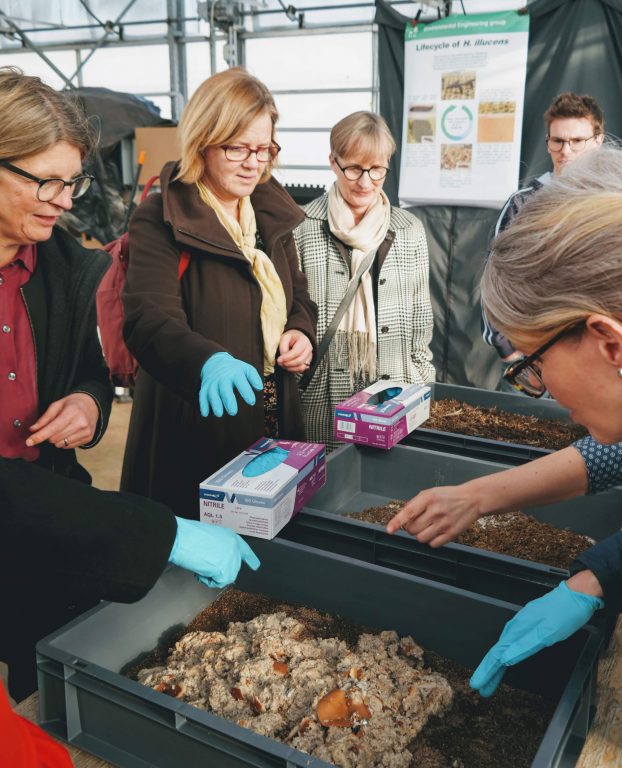English version coming soon
Professor Inger Enkvist ifrågasätter i sin kolumn i SvD den 13 januari det svenska systemet för forskarutbildning, särskilt det faktum att doktoranderna oftast är anställda. Enskilda doktorander respektive ordförande i Sveriges förenade studentkårer har reagerat och replikerat på kolumnen.
Det svenska systemet särskiljer sig vid en internationell jämförelse och dess konsekvenser för forskarutbildningen, forskningen och det svenska samhället är värda att diskutera. På SLU har vi länge arbetat utifrån strategin att en hållbar och förutsägbar försörjning under utbildningen ger bra förutsättningar för att forskarutbildningen slutförs i tid med examen. Idag har de allra flesta doktorander doktorandanställning eller annan form av anställning. För de 7 procent av våra doktorander som är stipendieförsörjda har vi som krav att stipendierna nominellt ska motsvara vad en anställd doktorand erhåller efter skatt. De stipendieförsörjda doktoranderna har numera även sjuk- och föräldraförsäkring via Kammarkollegiet.
I Enkvists kolumn och efterföljande repliker diskuteras flera dilemman. De jag finner mest centrala är:
- Doktorandernas dubbla roller som både studenter och anställda vilket kan leda till oklarheter vad gäller rättigheter, skyldigheter och ansvar. Både handledare och doktorander ska hantera sina roller som lärare/kollega respektive student/kollega och båda har prefekten som chef.
- Hur kostnader för doktorandens försörjning parat med krav på forskningsresultat, kan leda till att ”doktoranden föses mot målet” och/eller att avhandlingen inte blir ett resultat av självständigt intellektuellt arbete.
SLU hanterar ovanstående dilemman bland annat genom att:
- Stärka prefekternas roll som ansvarig för både institutionens anställda och dess utbildningsverksamhet.
- SLUs huvudhandledare har 10 veckors utbildning i högskolepedagogik inklusive doktorandhandledning. De är väl förberedda att leda utbildningen så att doktoranden vid examen har förmågan att självständigt bedriva forskning. Doktoranderna tränar denna förmåga huvudsakligen via avhandlingsarbetet men även via andra utbildningsaktiviteter. De bedöms och utvärderas kontinuerligt – av handledaren men även av andra forskare och lärare. Vid disputationen bedöms både det muntliga försvaret och den skriftliga avhandlingen av en fristående betygsnämnd.
Sammanfattningsvis söker SLU skapa förutsättningar som tydliggör att doktoranderna är studenter som utbildas, men att de har ett eget ansvar och gör det i ett sammanhang av forskande kollegor – utan oro för den omedelbara försörjningen. Doktoranderna hör till SLU:s viktigaste resurs. De bidrar med sina studier till att flytta forskningsfronten framåt. Att erbjuda dem anständiga villkor under deras studietid är för mig en självklarhet.
Karin Holmgren, rektor
Doctoral support
In her column (only in Swedish) from 13 January 2019, Professor Inger Enkvist questions the Swedish doctoral education system, especially the fact that doctoral students often are employed. Individual doctoral students and the chair of the Swedish National Union of Students have reacted to this column and responded to it.
The Swedish doctoral education system distinguishes itself in international comparisons, and the consequences for doctoral education, research and Swedish society are worth discussing. At SLU, we have long used the strategy that sustainable and predictable financial support during your studies gives you good conditions to complete your doctoral education in time, and with a degree. Today, most doctoral students have specific doctoral employments, or other forms of employment. For the seven per cent of our doctoral students who support themselves through scholarships, we require that these scholarships nominally correspond to what an employed doctoral student receives after taxes. Today, doctoral students with scholarships also have health and parental insurance through the Legal, Financial and Administrative Services Agency.
In Enkvist’s column and in subsequent replies, several dilemmas are discussed. The following are the ones I find most important:
- The double role of a doctoral student, considering that they are both student and employed, which may lead to uncertainty about rights, obligations and responsibilities. Both the supervisor and doctoral student must manage their roles as teacher/colleague and student/colleague, respectively. The head of department is the manager of both parties.
- Doctoral support costs together with required research findings can lead to “pushing the doctoral student towards the goal” and/or that their thesis is not a result of independent, intellectual work.
SLU handles the dilemmas above by for example doing the following:
- Strengthening the role of head of department as the person responsible for both department employees as well as its educational operations.
- Ensuring that principal supervisors at SLU go through ten weeks of teaching and learning in higher education training, including the supervision of doctoral students. They are well-prepared to teach in a manner that gives the doctoral student the ability to conduct independent research. Doctoral students primarily learn how to do this in their thesis work, but also through other education activities. They are continuously assessed and evaluated, both by their supervisor and other researchers and teachers. When defending their thesis, both their oral defence and written thesis are assessed by a separate examining committee.
In conclusion, SLU seeks to create conditions that enable doctoral students to be students, but also responsible for themselves in a context with research colleagues and without worrying about immediate financial support. Doctoral students are one of SLU’s most important resources. Through their studies, they contribute to moving research forward. Offering them decent conditions during their study period is unquestionable to me.
Karin Holmgren, Vice-Chancellor

